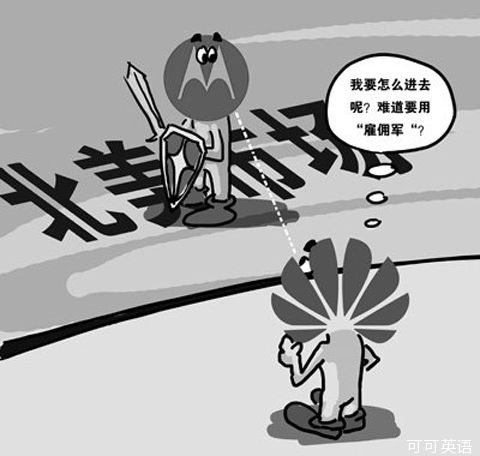
Huawei has given up its quest to conquer the market for telecoms network equipment in the US, where the Chinese company’s sales efforts have been blocked by security fears.
華為已經(jīng)放棄征服美國(guó)電信網(wǎng)絡(luò)設(shè)備市場(chǎng)的努力。由于美國(guó)方面的安全擔(dān)憂,華為在美國(guó)的銷售受到阻礙。
“We are not interested in the US market any more,” Eric Xu, executive vice-president, said at the company’s analyst meeting yesterday. The world’s second-largest supplier of network gear by revenue has shifted the focus of expansion away from the US over the past year.
華為執(zhí)行副總裁徐直軍(Eric Xu)昨天在公司的分析師會(huì)議上說(shuō):“我們已經(jīng)對(duì)美國(guó)市場(chǎng)不再感興趣。”過(guò)去的一年中,華為已經(jīng)將擴(kuò)張重心轉(zhuǎn)移出美國(guó)。按營(yíng)收計(jì),華為是全球第二大網(wǎng)絡(luò)設(shè)備供應(yīng)商。
US security officials and politicians have repeatedly identified Huawei as a threat to US national security – an allegation that the Chinese company has denied.
美國(guó)安全官員和政治家一直認(rèn)為華為對(duì)美國(guó)國(guó)家安全構(gòu)成威脅,而華為否認(rèn)這一指控。
Although Huawei has done business with 45 of the world’s top carriers, it failed to get contracts from any leading operators in the US.
盡管華為已經(jīng)與全球45個(gè)頂級(jí)運(yùn)營(yíng)商開(kāi)展業(yè)務(wù),卻沒(méi)有與美國(guó)任何主要運(yùn)營(yíng)商達(dá)成合約。
In October, a US congressional report officially branded Huawei and ZTE, its smaller Chinese peer, a threat to national security.
去年10月,美國(guó)國(guó)會(huì)的一份報(bào)告正式給華為和中興(ZTE)貼上“國(guó)家安全威脅”的標(biāo)簽。
Despite its success in other markets, including the UK, Huawei has struggled in the US for years because of concerns among politicians and security officials about the military background of its founder Ren Zhengfei, a former People’s Liberation Army officer.
盡管在包括英國(guó)在內(nèi)的其他市場(chǎng)獲得了成功,由于美國(guó)政治家和安全官員對(duì)華為創(chuàng)始人任正非軍方背景的擔(dān)憂,華為在美國(guó)已經(jīng)掙扎了數(shù)年。任正非以前是中國(guó)人民解放軍的一名軍官。
In 2008, Huawei retracted a bid for 3Com, a US technology company, after it emerged that the proposed deal would not gain regulatory approval in Washington.
2008年,華為取消競(jìng)購(gòu)美國(guó)技術(shù)公司3Com,原因是交易無(wú)法獲得華盛頓的監(jiān)管批準(zhǔn)。
Two years later, Huawei bid for a multibillion-dollar contract to supply network infrastructure to Sprint Nextel, one of the top US operators, but lost after Washington intervened.
兩年后,華為參與一項(xiàng)為美國(guó)主要運(yùn)營(yíng)商之一Sprint Nextel供應(yīng)網(wǎng)絡(luò)基礎(chǔ)設(shè)施的數(shù)十億美元合約的競(jìng)標(biāo),在華盛頓干預(yù)下失利。
In response to these and other setbacks, Huawei launched a US lobbying campaign. It also hired a number of senior executives from ailing rivals such as Nortel and Motorola, in an effort to build a massive US research and development presence and specifically target leading carriers such as AT and T, Verizon and Sprint. But October’s congressional report made it even more difficult for the company to do business in the US, Huawei executives say.
為了應(yīng)對(duì)種種挫折,華為在美國(guó)展開(kāi)了游說(shuō)活動(dòng)。華為還從北電網(wǎng)絡(luò)(Nortel)和摩托羅拉(Motorola)等境況不佳的對(duì)手延攬了多名高級(jí)管理人員,主要是為了在美國(guó)創(chuàng)建大規(guī)模研發(fā)隊(duì)伍,并把目標(biāo)對(duì)準(zhǔn)AT and T、Verizon以及斯普林特(Sprint)等主要運(yùn)營(yíng)商。但華為高管表示,美國(guó)國(guó)會(huì)去年10月的報(bào)告使得華為在美國(guó)開(kāi)展業(yè)務(wù)更加困難。
Huawei also yesterday revised downwards the outlook for its enterprise business, its youngest but fastest-growing division. William Xu, the unit’s chief executive, said its goal of generating $15bn in revenues from the business by 2017 – a target set just last year – was “too optimistic”. The company is now aiming for $10bn.
昨天,華為還下調(diào)了對(duì)企業(yè)業(yè)務(wù)部門(mén)的業(yè)績(jī)預(yù)期,這是公司最年輕、也是增長(zhǎng)最快的業(yè)務(wù)部。該部門(mén)總裁徐文偉(William Xu)認(rèn)為,去年才制定的在2017年之前創(chuàng)收150億美元的目標(biāo)“過(guò)于樂(lè)觀”。華為目前已經(jīng)將這一目標(biāo)調(diào)整為100億美元。


